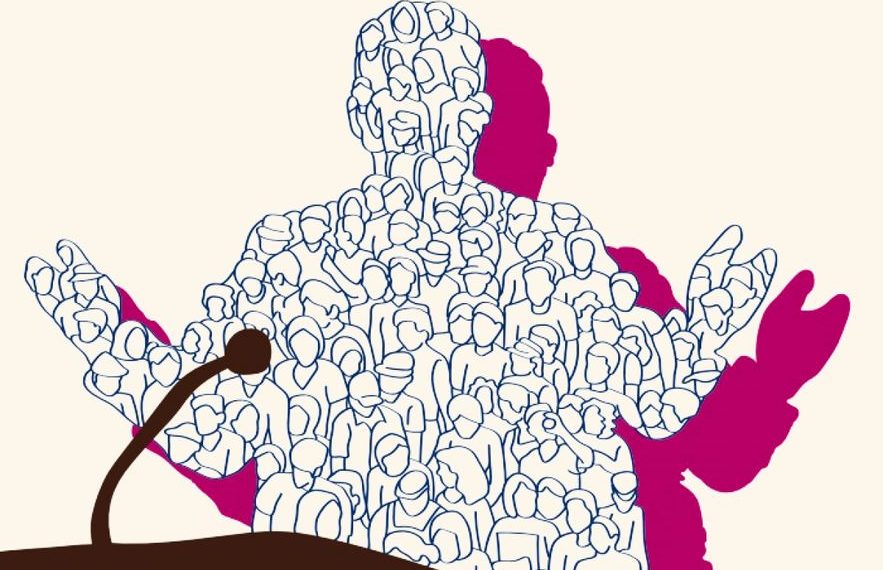
An Inside Look At The Political Decision Making Process
The process can seem impossibly complicated for those who seek true understanding of how governments make policy decisions. But we’re here to take you on a journey and provide an inside look into this complex web of bureaucratic and political maneuvering, a behind-the-scenes tour of the way our elected officials make educated guesses about what’s best for their citizens. From multifaceted committees studying reams of data to intense discussion among legislators debating tradeoffs between short-term benefits and long-term consequences, get ready – it’s time to delve deep into the world of political decision making!
How political decision making has changed over time
Political decision making has changed significantly over time, particularly in terms of the way governments make decisions. In traditional government structures, policy decisions were usually made by a small group of elites after consulting with their advisors and stakeholders. This kind of top-down approach meant that the views and interests of the wider public could easily be ignored or overruled.
In recent decades, however, there has been a shift towards greater public involvement in the policy-making process. Governments have increasingly used public consultations and surveys to understand better how citizens feel about certain policies and issues, allowing them to make more informed decisions that reflect popular opinion. Technology has also played an important role in this process, allowing faster feedback loops between citizens and decision makers.
Technology has also made it easier for citizens to participate in the decision making process. For instance, people are now able to use online platforms like websites, social media, and apps to have their voices heard by politicians and policy makers. Moreover, there has been an increasing trend of governments using digital tools such as blockchain technology to ensure that decisions are transparent and accountable.
Overall, the changes in political decision-making over time reflect a shift towards greater public involvement and transparency. By utilizing modern technology and listening more closely to citizens’ opinions, political leaders can better ensure that policies reflect the needs of the people they serve. This can ultimately lead to improved outcomes for everyone concerned.

Steps to making better political decisions
- Increase your understanding of the issues: It is important to understand the issues involved in any political decision before making a choice. Start by researching and learning about the key elements of each issue, including their history, current status, and potential future implications.
- Gather information from reliable sources: With so much online information, it can be difficult to determine which sources are reliable and accurate when it comes to politics. Read reports from reputable news outlets, look into studies conducted by trusted experts, and talk with people who better understand the situation than you do.
- Consider all angles: Every political decision has two sides—for and against—and both sides have valid points worth considering. So make sure to look at the pros and cons of each option before making a final decision.
- Don’t rush to judgment: Political decisions often require careful consideration, so try not to jump to conclusions too quickly. Instead, take your time in evaluating all of the information you’ve gathered before concluding.
- Get informed on multiple levels: Understanding what is going on at the local, state, national, and international level can help you make more informed decisions about politics. Learn as much as possible about political issues from diverse sources and don’t be afraid to ask questions if something doesn’t make sense.
- Consider the long-term implications: It is also important to consider how a political decision will affect the present and future. Try to think about how your choice might play out over time and whether it will positively or negatively impact society in the long run.
- Act responsibly: Finally, remember that with great power comes great responsibility. Be sure to act responsibly when making political decisions and consider the potential consequences of your actions before taking them. Your choices can make a difference, so use your voice wisely!
The role of political decision making in society
 Political decisions have the potential to shape and influence social structures, economic systems, public policies, and more. Therefore, political decision making must be undertaken with thoughtfulness and care. This can include weighing the costs and benefits of different options, considering various perspectives on a given issue, evaluating potential outcomes for stakeholders, understanding the complexities of a situation or policy, and consulting experts in order to make well-informed decisions. In addition to these considerations, political decision makers must also be aware of the impact their decisions might have on society at large. Through careful consideration and deliberation of all possible ramifications of any given choice, politicians can ensure that their decisions are both fair and beneficial for all involved. By taking such measures into account, political decision makers can ensure that their decisions are in the best interests of society.
Political decisions have the potential to shape and influence social structures, economic systems, public policies, and more. Therefore, political decision making must be undertaken with thoughtfulness and care. This can include weighing the costs and benefits of different options, considering various perspectives on a given issue, evaluating potential outcomes for stakeholders, understanding the complexities of a situation or policy, and consulting experts in order to make well-informed decisions. In addition to these considerations, political decision makers must also be aware of the impact their decisions might have on society at large. Through careful consideration and deliberation of all possible ramifications of any given choice, politicians can ensure that their decisions are both fair and beneficial for all involved. By taking such measures into account, political decision makers can ensure that their decisions are in the best interests of society.
As such, it is important for politicians to be well-informed about the issues facing their constituents and to engage in thoughtful discussion with them. For instance, when making decisions about health care reform or environmental regulation, politicians should consider the needs of those most affected by these changes. This could involve talking to community members directly or consulting experts on the topic at hand in order better to understand potential outcomes and implications of any proposed action. Furthermore, regular feedback from constituents should also play an important role in any political decision making process. By hearing out individual concerns and opinions, politicians can make more informed choices that reflect the needs of their constituents.
Finally, politicians must also take into account the long-term implications of their decisions when making political choices. Every decision should be made with consideration for its potential effects on future generations and the global environment. This can include an assessment of how any proposed policy or might affect climate change, poverty levels, educational opportunities, and more. Through careful research and consultation with experts, politicians can ensure that their decisions will have positive impacts in the long run.
